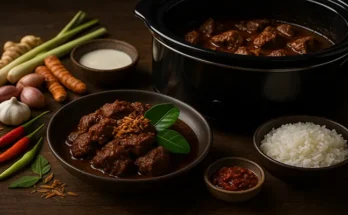There are many different careers in the culinary arts, ranging from being a chef to preparing visually appealing dishes for movies. You can also become a food stylist, taste new recipes and provide feedback to chefs to help companies create marketable recipes. Other types of culinary jobs include food writers, who review recipes, restaurants, and other culinary experiences.
Regardless of your interest, there are many opportunities for you with a degree in culinary arts.
Careers in the culinary arts
The culinary arts have never had it so good. In fact, the field has seen a huge surge in enrollment over the past decade. This is due in large part to television, which has made the culinary arts an increasingly popular career choice. More people are choosing to eat out rather than cook themselves, and TV shows featuring celebrity chefs have also become extremely popular. According to the U.S. Bureau of Labor Statistics, job growth is projected to continue through 2024.
Those with an interest in cooking should consider a career in a restaurant, though there are other career options in the field. There are also jobs in artisan producers who create specialty foods. And there are food critics who assess the quality of local restaurants. Food writers use an anthropological approach to study cultural cuisines. If you are interested in food and the arts, a career in these fields could be perfect for you.
Degree requirements
Culinary schools offer a variety of programs. Certificate programs typically last two to three months and focus on basic and advanced food preparation. These programs may also cover baking and menu planning, as well as sanitation and nutrition. You’ll also need to complete an internship, which is often paid and can enhance your degree. Internships also give you real- world experience, letting you work in a restaurant setting. Here are the prerequisites for culinary arts programs.
The basic education for a culinary career should include the fundamentals of computer science. You’ll also need to be ethical, responsible, and have a high level of emotional intelligence. You can focus on technical skills and culinary management, or you can focus on food service. In addition to the core culinary courses, there are also courses available to teach people about business management. This is essential if you hope to open up your own restaurant or catering business.
Career outlook
A degree in culinary arts will prepare you for a variety of culinary careers. These positions can range from fine dining restaurants to fast food joints. According to the U.S. Bureau of Labor Statistics, jobs in this industry will grow by nine percent from 2014 to 2024. The outlook for the culinary arts is also good. Despite this slow growth, there are many advantages to the career. Listed below are some of the benefits. After completing your culinary arts degree, you’ll be ready to hit the road as a chef, cook, or food prep worker.
The restaurant industry is a thriving industry. In fact, it employs 14.5 million people in front-of- house and kitchen positions. However, competition for these positions is fierce. According to the Bureau of Labor Statistics, there are currently more than 110,700 chefs employed in the United States. So, if you’re considering a career in the culinary arts, now is the time to start building your resume. This is an excellent way to make yourself more marketable to employers.
Colleges that offer culinary arts programs
There are a number of culinary schools in New York. The five top-ranked culinary schools are listed below. Paul Smith’s College is a private, four-year college located in the Adirondack Park. The campus spans over 14,000 acres. Students can enroll in culinary management programs or certificate programs. For those interested in taking their education to the next level, there are also a number of options at State University of New York campuses.
Some programs may have prerequisites, including high school education. Other programs may have a higher age requirement, such as a GED. For example, some programs only require an associate’s degree, while others offer four-year degrees. Some culinary schools also have minimum age requirements. Additionally, students do not need to demonstrate cooking skills prior to admission. The length of a culinary program depends on the type of program you pursue. A bachelor’s degree in culinary management will require four years of full-time study, while an associate’s degree can take two years. A culinary certificate, however, will take less than a year to complete.





